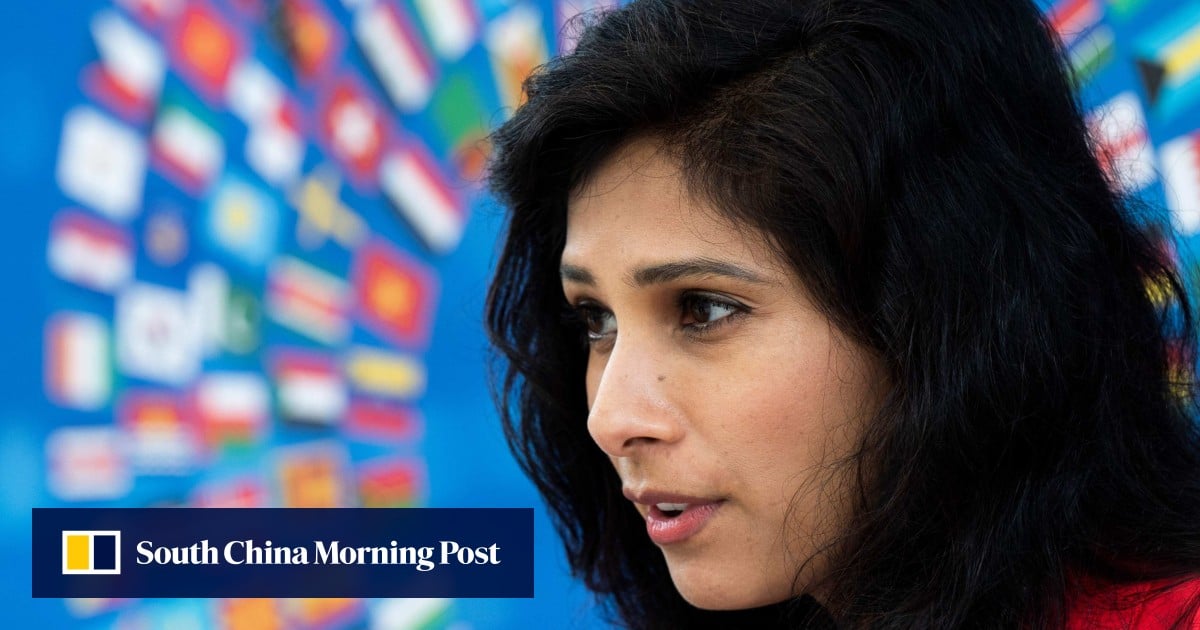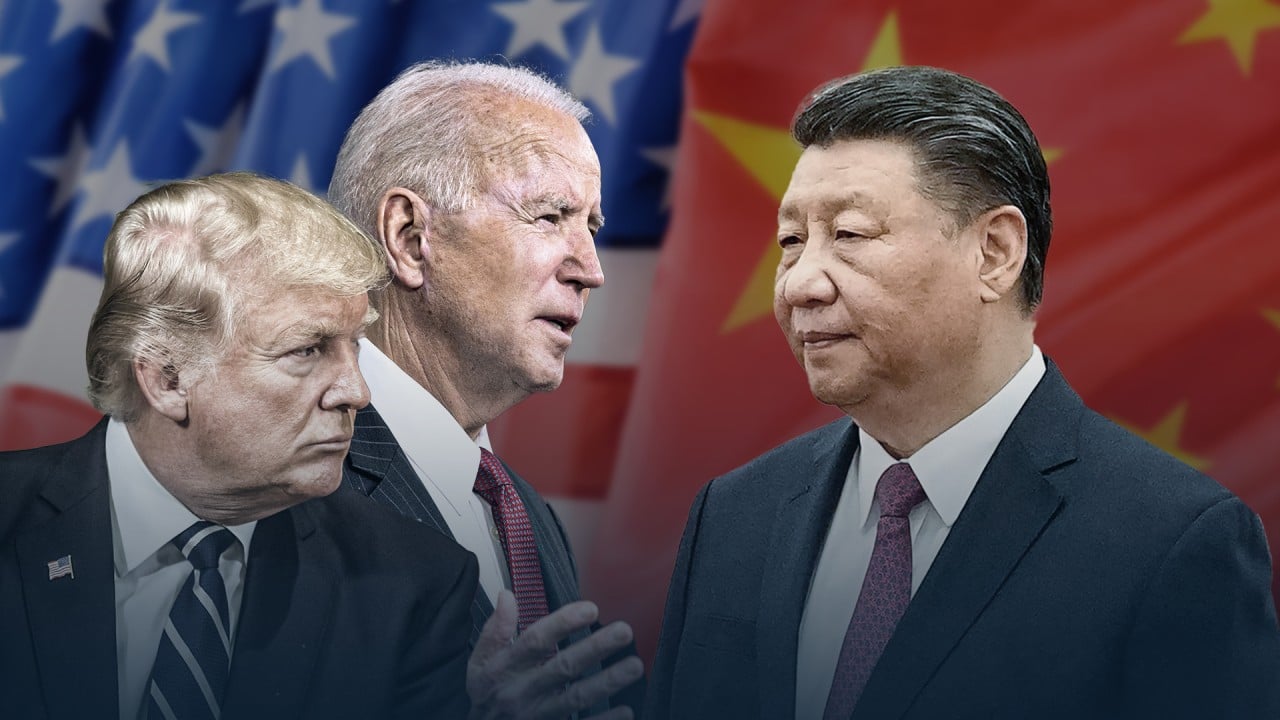Her remarks come at a time of increased geopolitical uncertainty over a number of challenges, most notably an escalating rivalry between the US and China and the war in Ukraine.
Although economic fragmentation is not yet as severe as it was during the Cold War, Gopinath said, it carries a much greater potential cost thanks to higher global reliance on trade.
China’s share of US imports fell by 8 percentage points between 2017 and 2023 as trade and overall relations between the two countries fragmented, while the US’ share of China’s exports fell by about 4 percentage points during the same period.
Trade between blocs of countries aligned with either China or the US was also negatively affected, Gopinath said.
Between the middle of 2022 and 2023, the average weighted quarter-on-quarter trade growth between US-leaning countries and China-leaning countries fell by nearly five percentage points compared with the five-year period between 2017 and early 2022.
Similar patterns could also be observed following Russia’s invasion of Ukraine, with trade and investment between blocs falling more than trade within blocs.
Meanwhile, the currency composition of trade finance had also changed more for China-leaning countries than US-leaning ones, according to Gopinath. The proportion of US dollar-denominated trade finance payments among China-leaning countries fell since early 2022, while the yuan-denominated share doubled from around 4 to 8 per cent. US-leaning countries experienced little change.
This would persist even if Russia was excluded from the China-leaning bloc, she said, indicating a more globally pervasive trend.
High-level dialogues between Beijing and the West have increased in recent months, as top officials try to repair relations tested by years of wrangling over national security concerns, allegations of anticompetitive behaviour and China’s support for Russia in the wake of its invasion of Ukraine and the numerous Western sanctions that followed.
Despite Beijing’s attempts to woo back foreign investors, many international companies remain wary, citing China’s economic slowdown and ongoing geopolitical tussles.
So far, the erosion of direct US-China economic ties has been allayed through third-party “connector countries” like Mexico and Vietnam, which have become conduits for redirecting trade, Gopinath said.
Dialogue between the US and China – which we are now seeing – can help prevent the worst outcomes from occurring
But the cost of worsening divisions could vary greatly, she added, with losses ranging from as little as 0.2 per cent of world GDP in a mild scenario to 7 per cent in an extreme one.
The consequences of such a downturn would not be suffered uniformly, with the IMF predicting low-income countries would be hit harder by trade fragmentation due to a greater reliance on agricultural imports and investment from more developed countries.
“Dialogue between the US and China – which we are now seeing – can help prevent the worst outcomes from occurring. Non-aligned countries can also play a bigger role, using their economic and diplomatic heft to keep the world integrated,” she said.
Others have been less hopeful in their projections. A separate report, released on Tuesday by the Economist Intelligence Unit, predicted that economic and diplomatic ties between China and the US will worsen through the rest of the decade, regardless of the outcome of the US presidential elections in November.


